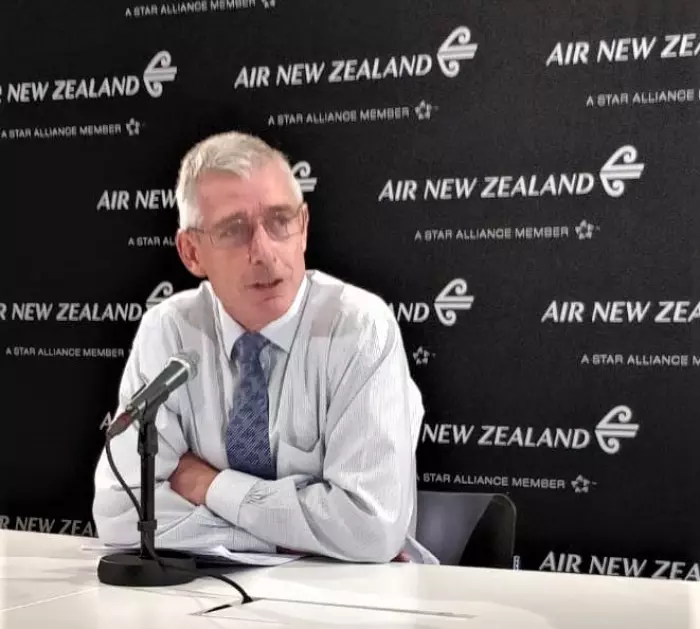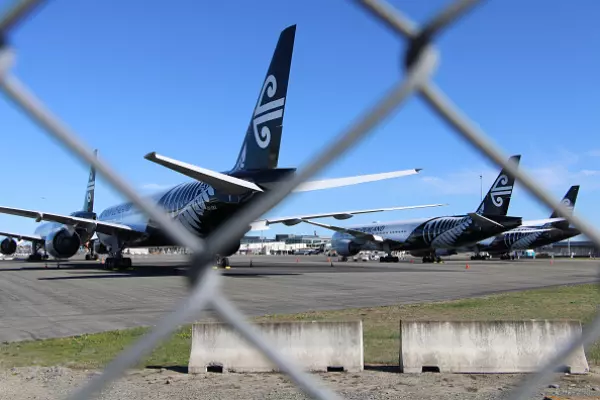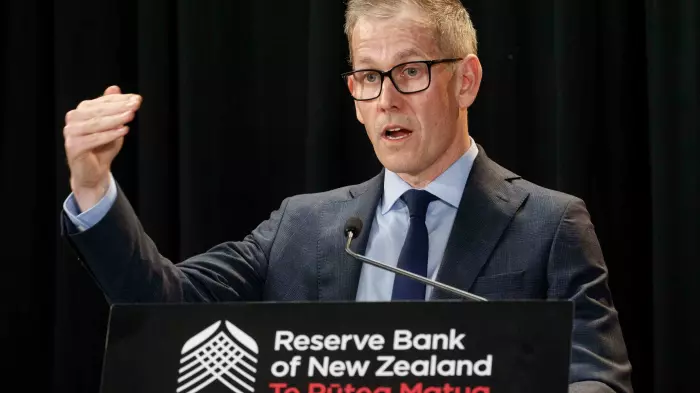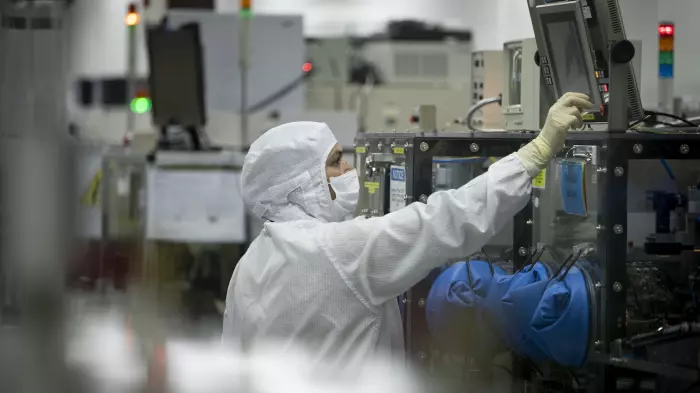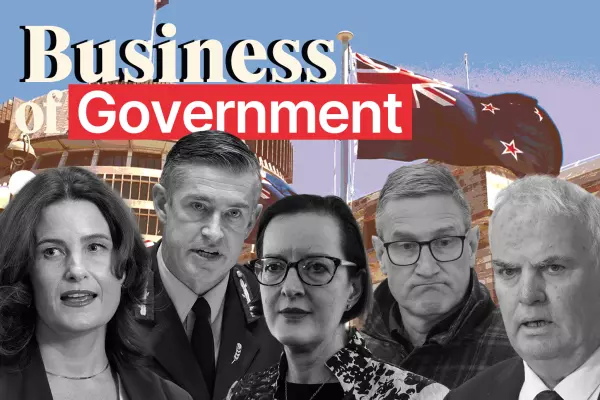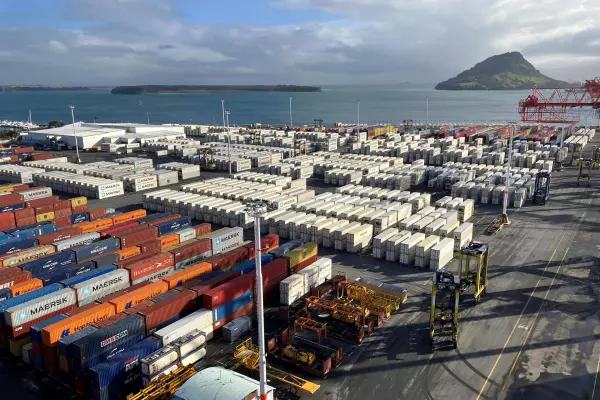With the pandemic bringing New Zealand's national airline to its knees amid an exodus of senior executives and rumoured infighting, Pattrick Smellie and Rebecca Stevenson take a closer look at the company's stoic chief executive and what its future holds in a special two-part series.
As far as public outings go, Thursday, Feb 10, is probably a day that Air New Zealand chief executive Greg Foran would rather file and forget.
That was the day Foran and the airline board’s chair, Therese Walsh, made a usually ritual, annual appearance before Parliament’s transport select committee to review the previous financial year.
Had it been a normal day, there would have been brickbats and bouquets, but precious little news.
Everybody knows the story.
Covid-19 brought the airline to its knees, it got a high-interest $900 million lifeline from the government, angered many with the slow and sometimes parsimonious way it handled cancelled flights, and had to let about 4,000 staff go as its burgeoning long haul business shrank to almost nothing overnight.
More recently, social media warriors have debated the wisdom of requiring facemasks on flights while also serving food and drink, which require the masks’ removal.
Later the same day, Foran will quietly don a black pinny and serve tea, coffee and corn chips to passengers on the 4pm from Wellington to Auckland as part of his trademark “live in the business” philosophy. Transpower CEO Alison Andrew and Powerco CEO Nigel Barbour, also on the flight, were probably none the wiser.
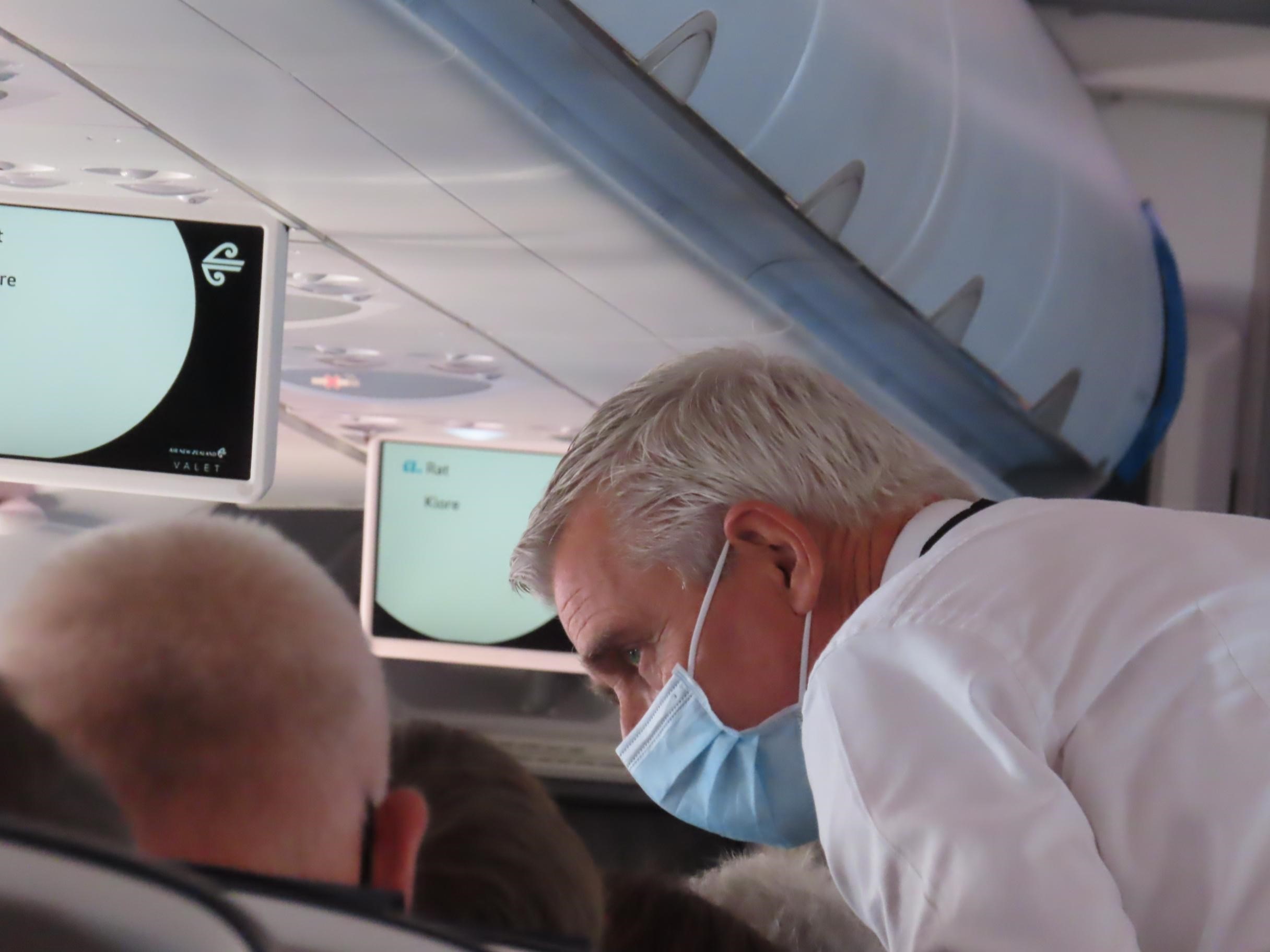
However, before Foran (above) could perform that humble task, he had to humble himself in front of MPs hungry to score points from TVNZ’s embarrassing scoop that the airline had subcontracted to refurbish gas turbines belonging to the Saudi Arabian navy.
The contracts were signed under the previous chief executive, Christopher Luxon, now a National Party MP and clearly the most exposed target in this story, and were below a $3m threshold that meant no one at the top needed to be asked.
It is now Foran’s problem to front and he does so with the same almost unreadable air of calm that pervades his demeanour whoever he is speaking to: MPs, reporters, or the staff in the crew room at Wellington airport.
Once before the committee, the approach Walsh takes is simple and an object lesson for corporates that prefer to wrap their apologies in honeyed verbiage.
A straightforward apology and as open an explanation of what the company already knows ensues.
Quite simply, Foran says, the airline appears only to have asked “could we” do this work rather than asking “should we”.
Policies would change to ensure that question was asked in the future.
For the vast majority of New Zealanders, most of whom were probably learning about the existence of the Saudi blockade of three million Yemeni refugees’ food and medical supplies, a brief and explosive story was defused.
Bigger fish to fry
On the plane back to Auckland, Foran expresses a measured frustration — because Greg Foran is a very measured individual who has been through a lot of corporate fires. It is just possible his preternaturally low-key approach is one of his biggest secret weapons.
As a battle-hardened chief executive, he also knows that one of the prices of being paid the big bucks is taking the rough with the smooth and the Saudi affair is a bit of the rough. He expects it to pass, but it’s been a huge distraction from saving the airline.
He and his team have also been up since all hours dealing with the implications for staff, planes and airports of tsunami warnings issued overnight.
However, uppermost in his mind that day was something completely different: the complex negotiation with the Crown, 52% owner of the national carrier, for a capital-raising before June 30.
Tipped by brokers Jarden to raise $1.5 billion, it is vital to giving the airline the balance sheet strength it needs to ride out anything up to another two years of disrupted global travel.
The very next day, the airline would announce the government had agreed to maintain its majority shareholding, an important milestone for a deal that might well have been finalised while Foran and Walsh were at Parliament and within cooee of the minister of finance’s office.
Now, back at Wellington airport, he’s drawing out a couple of the senior ground staff on all manner of things, from rostering to the price of pets on planes. The latter is an issue of increasingly shaggy proportions since covid, which has seen New Zealanders dragging Fido off on holiday in unprecedented numbers.
In the crew room, he switches seamlessly from doting dad one minute — showing them pix on his phone of his five-month-old son — to a piercing question on staff’s willingness to be vaccinated against covid-19. If the decidedly mixed reaction bothers him, he doesn’t show it.
Cold or considered?
A devotee of karate, Foran comes off as a man who absorbs both information and blows so calmly he could almost come off as cold.
Except that wherever he wanders behind the scenes in both Wellington and Auckland airports, staff seem quite used to the fact the boss has popped in for a chat — not something Luxon was renowned for, although his predecessor, Rob Fyfe, was a bit of a banterer.
Foran talks about the fact that in large organisations the CEO is often the only person with the power to make decisions that unblock the simplest frustrations: like variable charges based on dog size or rosters starting at a different time every day.
Perhaps rather than cold, a fairer assessment might be that Foran’s manner is considered, and he plays his cards close to his chest.
He is also quietly, enormously confident.
Challenged on the point that some chief executives race around inside businesses making decisions that just cause chaos, he gives a slightly dreamy smile and says: “Well, you’ve got to know what you’re doing”.
The former CEO of retail giant Walmart in China, and then the US, is a student of the most successful US corporate leaders and he quotes their example continuously.
Now, dealt the hospital pass of running an airline that had been planning its first non-stop flights to New York and is instead just pleased to be resuming services to Invercargill, he is getting on with it.
His way.
A long way from Hollywood
Foran has come a long way since June 2019, when he stood on stage next to A-list Hollywood star Jennifer Garner. He was speaking to the Walmart Associate and Shareholder meeting, in what would be his last big appearance at the helm of the giant US retailer.
He took a trip down memory lane; describing his journey from a Kiwi tourist to the US, whose only knowledge was New York and the Grand Canyon, to the boss of a business that is a household name around the world and has so much history it has its own museum.
He described how, standing on the Walmart stage for the first time five years earlier, he’d felt like he was standing in front of the whole of New Zealand, so large is the firm.
NZ has a population of 5 million. Walmart has about 1 million employees and annual sales 50% larger than NZ’s gross domestic product.
Walmart shares trade for about $140, it has 4,743 stores in the US alone, and revenue for Walmart Inc. in 2020 was US$524b.
In its US business in the 2020 financial year, sales totalled US$341b, up from US$331.7b in 2019 and US$318.5b in 2018.
Walmart Man
Back then, he didn’t have any grey hair.
Today, at 59, he has a full head of it, along with two children under the age of six and three adult children, including rugby league star Kieran Foran.
It’s likely that even as he was making that speech in mid-2019, the wheels were already in motion to really put him in front of the nation: but as the head of the national carrier Air New Zealand, with his young second family a key part of the motivation.
It may also have become tempting to move on anyway.
Foran’s time at Walmart was successful, leading a reformation at the retailer.
That programme boosted poor stores’ performance and accelerated its online grocery business. His departure was reported as a blow to Walmart by Bloomberg.
Why would Foran leave Walmart to head up Air New Zealand, after building an impeccable career and reputation in retail and with his Walmart turnaround arguably unfinished?
Rumoured infighting between Walmart’s executives burst into the open in July 2019.
The relationship between Foran and e-commerce head Marc Lore had “soured”, it was reported.
Foran was reportedly “miffed” with the public credit Lore’s division was getting for Walmart’s impressive online growth. The programme, it was pointedly highlighted, was started before Lore had joined Walmart and his business, Jet, was purchased.
The success and credit should be Foran’s was the implication.
In September, Lore did an interview confronting the rumours head-on.
“That tension, I would argue, is actually good and it’s not unhealthy in any way,” Lore said.
But by October the ambitious Kiwi announced his exit.
Foran, hailed as the "greatest retailer on the planet" by Walmart global chief executive officer Doug McMillon, was heading to his homeland but an unfamiliar industry — aviation.
The crash
We all now know how the covid-19 pandemic has disrupted lives, decimated the tourism industry, and pushed Air NZ into what aviation analyst and commentator David MacKenzie has called “its deepest crisis”.
It has come close to failing, yet for most of last year, its brand new chief executive and its board, or at least its chair Therese Walsh, were strangely quiet, to the point where it began to attract comment.
However, Foran immediately faced a new, mammoth task and took the view he would only appear when it made sense to appear.
Costs would be contained, or aggressively cut. He announced in his first 100 days he would “undertake a diagnostic” of the airline’s opportunities and risks. It was clear jobs would go. But which ones?
The impact of a new broom and the savage reversal of the previously bullish airline took its toll.
Within months, anecdotes about a toxic atmosphere in the c-suite at Air NZ’s Auckland headquarters were rife, aided by an exodus of senior staff — some planned, some not.
“The tension is so thick you could cut it with a knife,” an insider said at the time.
Foran’s hierarchical, North American management style grated with some. He expected respect and didn’t always get it.
Air NZ’s previously close and collegial senior management team was being challenged by both covid and new leadership. It was undergoing uncomfortable and major disruption.
In May, the first casualties of Foran’s review got their marching orders. If the rest of the business was slimming down, so would the executive team.
Soon, chief strategy networks and alliances officer Nick Judd was gone, along with chief air operations and people safety officer John Whittaker and Mike Tod, chief marketing and customer officer.
Combined, the trio had 68 years with the airline.
These departures didn’t create big public waves and there was support in principle for the need to ‘trim the sails’.
Rivalry at the top
However, there was a deeper tension brewing between Foran and former chief commercial and customer officer Cam Wallace, a star performer who might have expected to be Luxon’s heir.
Foran’s decision not to attend a farewell held for the trio at Wallace’s home became the subject of disgruntled gossip, being seen as a snub and out of character with the airline’s collegial culture.
“Even the new HR head who’d engineered the departures turned up,” a source said.
Multiple sources confirmed to BusinessDesk that Wallace asked Foran to attend, but Foran declined. It would be awkward, Foran is said to have explained.
An arguable social misjudgement took on a life of its own among senior managers who were chafing under a new boss, who has resolutely declined interviews on the subject.
The next major departure was Wallace himself, who had become the face of the airline during the early covid-19 lockdown phase while Foran stayed out of the public eye.
Wallace had been with Air NZ for 19 years and had positioned himself as a CEO-to-be, raising his profile through a sparky social media presence — which didn’t always play well internally — and taking high profile slots to speak at conferences, for example.
He, and not Foran, fronted for the airline as it attempted to soothe thwarted travellers angry over its cancellation policies.
The press release announcing Wallace’s exit played up his ambition.
“Cam has advised me today that given the airline is now effectively a domestic carrier for the foreseeable future that he is resigning to pursue opportunities that meet his global career ambitions,” Foran’s statement said.
Yet Wallace would soon announce an incongruous next career move — to head struggling local media company MediaWorks, owner of TV3 and RadioWorks.
“Wallace is not leaving because the airline is suddenly so diminished,” a source said.
The next shoe dropped swiftly and also caused concern.
Within a month, the softly spoken, highly regarded chief financial officer Jeff McDowall said he too would leave once the June capital raising was completed.
Now there were five senior management team exits. What started as a plan was looking like a rout — and no one was explaining it.
Instead, from the outside, all that Air NZ-watchers could see was McDowall and Wallace, who had started within days of each other all those years ago, were now leaving together.
“McDowall simply could not work with Foran,” a source said.
A current employee said McDowall’s exit was disappointing. It was concerning that the airline had lost the most important people it had had for a good many years.
“[McDowall] was the backbone in terms of his performance. This view was widely held within Air NZ … the senior executives would hold Pilot Biz days and these executives would front up there and he always performed well. At least he has deferred his exit to some time down the track, but it’s really hard to get a feel for what’s going on in Fanshawe Street these days.”
Foran started to pick up uncomplimentary nicknames: “the grumpy grocer” and “Grandad” among them.
How serious really?
On the other hand, the divisive chatter has all but ceased since Wallace left the building.
The trauma of taking to a beloved corporation with an axe — for which Foran was the prime mover — is giving way to a sense of what the future looks like as covid starts to recede.
Was Foran, the greatest retailer in the world, simply doing what he knew best — going through expenses line by line and scything through the fat, knowing there would be hurt and anger but wearing it all with his impassive stare?
The cull has certainly reduced costs at head office.
In the 2020 financial year, the airline had a handful of very highly paid executives. One person is on a salary of up to $4.4m per annum, although Foran, like the rest of the remaining senior team, has taken a pay cut to reflect the airline’s straitened fortunes.
Another, likely to be McDowall or Wallace, took home up to $2.3m salary in 2020, while one was paid up to $2.1m.
There were 10 staff members on more than $1 million per year in 2020.
Its senior exec team is now seven.
Mackenzie nonetheless believes Foran “should be very worried” to have lost McDowall and Wallace.
“He knows he hasn’t got much aviation experience himself … I would have thought he would have taken the opportunity to lean quite heavily on them, learning as quickly as he can from people like that.
“You worry the sort of experience needed right now may not be there at the top level, but maybe Greg just decided he wanted a refreshed team to deal with the new world aviation is now in.”
The current Air NZ employee said the level of aviation experience at Air NZ was diminishing.
“We see it operationally where a whole lot of staff have left … the ones used to play 3D chess metaphorically and manage disruptions to our charters … Now there are those errors creeping in and all of those old hands have gone.”
Deep bench
Other former executives, however, point to the fact Air NZ has long taken pride in developing one of the deepest “benches” of up-and-coming senior leaders in a country that often does large corporations poorly. Certainly, most of the gaps left across the senior team have been filled from within.
After a shaky public start in a uniquely difficult role, 2021 is shaping as a crucial year for Foran either to prove he’s got what it takes or to fuel his detractors’ doubts.
Frustratingly for those of us hoping he might discuss any of this, Foran gives every appearance of being a leader who prefers to let the results speak for themselves.
The question, then, is how quickly will those results be achieved?
Monday: The future of Air New Zealand


